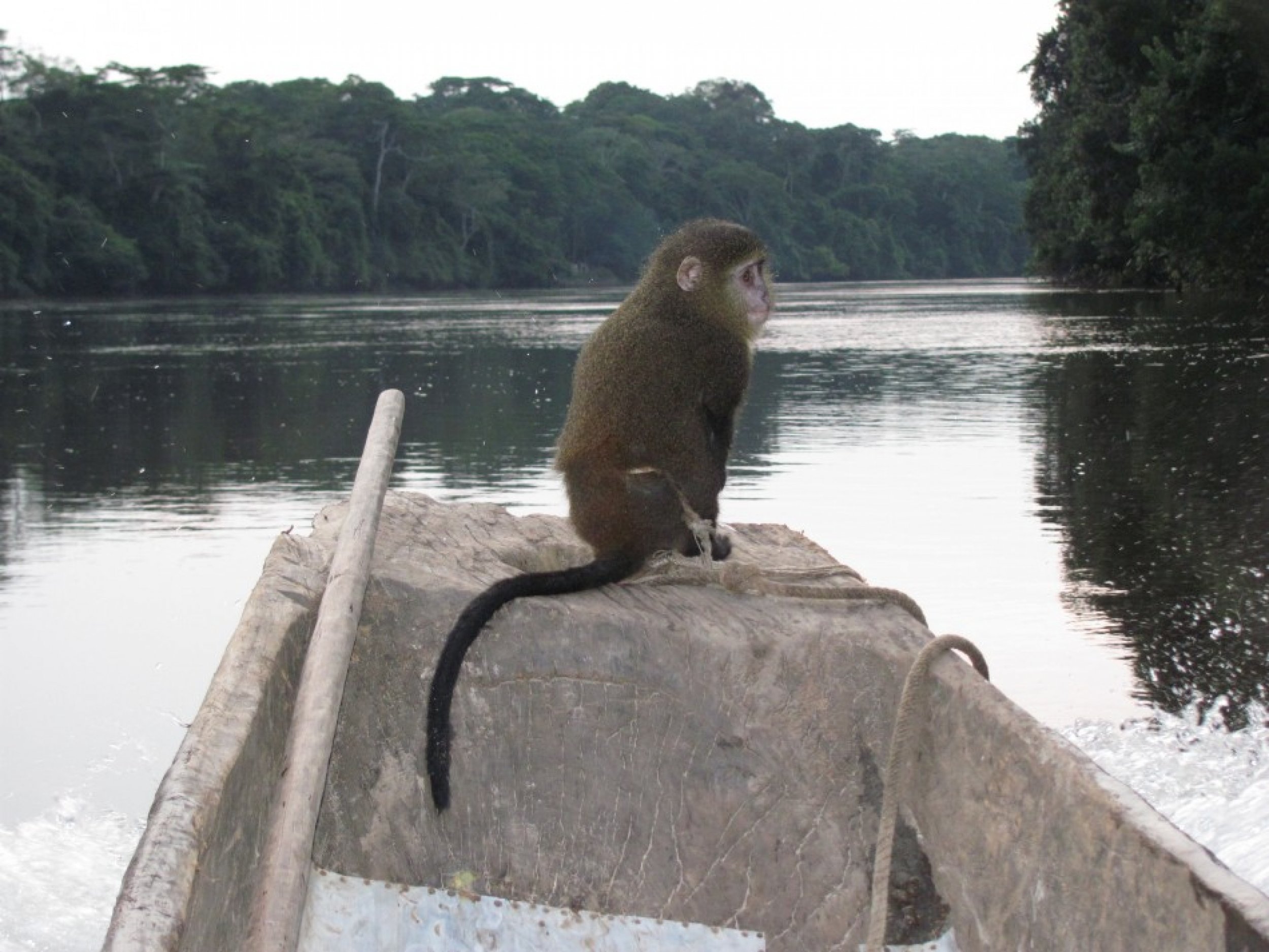New Species Of Monkey With Unusual Coloring and 'Human Like' Eyes Found In Congo
Scientists have identified a new species of African monkey with distinct coloring that differentiates it from other species. The new primate species now scientifically named Cercopithecus lomamiensis was first found by a research team during their field surveys in a remote area of the middle Lomami Basin between Tshuapa, Lomami and Lualaba Rivers in central Democratic Republic of Congo.
The species is locally known as "Lesula" and was first seen by researchers in captivity in 2007 with a schoolgirl in the town of Opala who had it as a pet.
"We never expected to find a new species there.. Right away I saw that this was something different. It looked a bit like a monkey from much further east, but the coloring was so different and the range was so different," said Dr. John A. Hart lead scientist and researcher with the Lukuru Foundation, a wildlife research group, who identified the species.
Hart, along with his wife and fellow researcher Terese Hart, and his team of field researchers were on a research expedition to Africa's remote Lomami forest, when the team unexpectedly came across the unusual looking monkey species.
The owl-faced monkey has a blond chin and upper chest with dark limbs and a reddish color on the lower back which make it quite different from other monkey species. Researchers said that its unusual coloring made them suspect that the species was something new.
"And adult males have a huge bare patch of skin in the buttocks, testicles and perianal area. It's a brilliant blue, really pretty spectacular," said Hart.
In a report published in the journal PLoS One, Hart said that the Lesula is only the second new species of African monkey to be discovered in the past 28 years. The Lesula has a mane of long grizzled blond hairs, framing a protruding pale, naked face and muzzle, with a variably distinct cream-colored vertical nose stripe.
One of the portrait photos taken by the researchers depicts a female Lesula with amazing human-like eyes and a remarkably melancholic expression.
The researchers, having observed the species for the past five years both in captivity and in the wild, say the analyzed DNA samples confirm the Lesula's genetic distinction from that of other species.
The Lesula monkeys live in the remote forests of central Congo and are well-known to local hunters. The Lesula is hunted upon by humans and also wild animals and big birds of prey such as eagles. The Lesula are already considered "vulnerable" as the locals hunt them for food or to sell to the bush-meat trade, thereby endangering their existence.
The husband-wife team are now raising funds to to launch a conservation project to protect the newly found species.







© Copyright IBTimes 2025. All rights reserved.






















